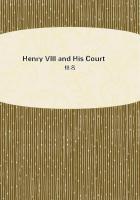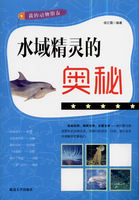Burke, who deserves to be called the foremost author in this method of treatment, deduces, on these lines, "that the feeling of the sublime is grounded on the impulse towards self-preservation and on fear, i.e., on a pain, which, since it does not go the length of disordering the bodily parts, calls forth movements which, as they clear the vessels, whether fine or gross, of a dangerous and troublesome encumbrance, are capable of producing delight; not pleasure but a sort of delightful horror, a sort of tranquility tinged With terror." The beautiful, which he grounds on love (from which, still, he would have desire kept separate), he reduces to "the relaxing, slackening, and enervating of the fibres of the body, and consequently a softening, a dissolving, a languor, and a fainting, dying, and melting away for pleasure." And this explanation he supports, not alone by instances in which the feeling of the beautiful as well as of the sublime is capable of being excited in us by the imagination in conjunction with the understanding, but even by instances when it is in conjunction with sensations.As psychological observations, these analyses of our mental phenomena are extremely fine, and supply a wealth of material for the favourite investigations of empirical anthropology.But, besides that, there is no denying the fact that all representations within us, no matter whether they are objectively merely sensible or wholly intellectual, are still subjectively associable with gratification or pain, however imperceptible either of these may be.(For these representations one and all have an influence on the feeling of life, and none of them, so far as it is a modification of the subject, can be indifferent.) We must even admit that, as Epicurus maintained, gratification and pain though proceeding from the imagination or even from representations of the understanding, are always in the last resort corporeal, since apart from any feeling of the bodily organ life would be merely a consciousness of one's existence, and could not include any feeling of well-being or the reverse, i.e., of the furtherance or hindrance of the vital forces.For, of itself alone, the mind is all life (the life-principle itself), and hindrance or furtherance has to be sought outside it, and yet in the man himself consequently in the connection with his body and melting But if we attribute the delight in the object wholly and entirely to the gratification which it affords through charm or emotion, then we must not exact from any one else agreement with the aesthetic judgement passed by us.For, in such matters each person rightly consults his own personal feeling alone.But in that case there is an end of all censorship of taste-unless the afforded by others as the result of a contingent coincidence of their judgements is to be held over us as commanding our assent.But this principle we would presumably resent, and appeal to our natural right of submitting a judgement to our own sense, where it rests upon the immediate feeling of personal well-being, instead of submitting it to that of others.
Hence if the import of the judgement of taste, where we appraise it as a judgement entitled to require the concurrence of every one, cannot be egoistic, but must necessarily, from its inner nature, be allowed a pluralistic validity, i.e., on account of what taste itself is, and not on account of the examples which others give of their taste, then it must found upon some a priori principle (be it subjective or objective), and no amount of prying into the empirical laws of the changes that go on within the mind can succeed in establishing such a principle.For these laws only yield a knowledge of how we do judge, but they do not give us a command as to how we ought to judge, and, what is more, such a command as is unconditioned-and commands of this kind are presupposed by judgements of taste, inasmuch as they require delight to be taken as immediately connected with a representation.Accordingly, though the empirical exposition of aesthetic judgements may be a first step towards accumulating the material for a higher investigation, yet a transcendental examination of this faculty is possible, and forms an essential part of the Critique of Taste.For, were not taste in possession of a priori principles, it could not possibly sit in judgement upon the judgements of others and pass sentence of commendation or condemnation upon them, with even the least semblance of authority.
The remaining part of the Analytic of the aesthetic judgement contains first of all the:
Deduction of Pure Aesthetic Judgements.
SS 30.The deduction of aesthetic judgements upon objects of nature must not be directed to what we call sublime in nature, but only to the beautiful.
The claim of an aesthetic judgement to universal validity for every subject, being a judgement which must rely on some a priori principle, stands in need of a deduction (i.e., a derivation of its title).Further, where the delight or aversion turns on the form of the object this has to be something over and above the exposition of the judgement.Such is the case with judgements of taste upon the beautiful in nature.For there the finality has its foundation in the object and its outward form-although it does not signify the reference of this to other objects according to concepts (for the purpose of cognitive judgements), but is merely concerned in general with the apprehension of this form so far as it proves accordant in the mind with the faculty of concepts as well as with that of their presentation (which is identical with that of apprehension).With regard to the beautiful in nature, therefore, we may start a number of questions touching the cause of this finality of their forms e.g., how we are to explain why nature has scattered beauty abroad with so lavish a hand even in the depth of the ocean where it can but seldom be reached by the eye of man-for which alone it is.final?















